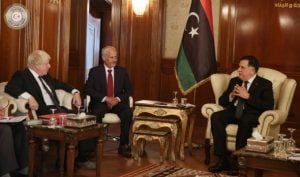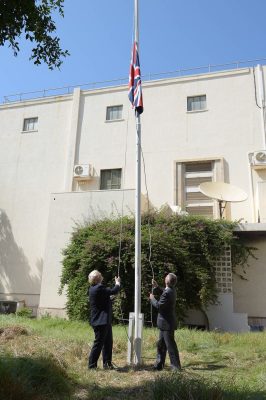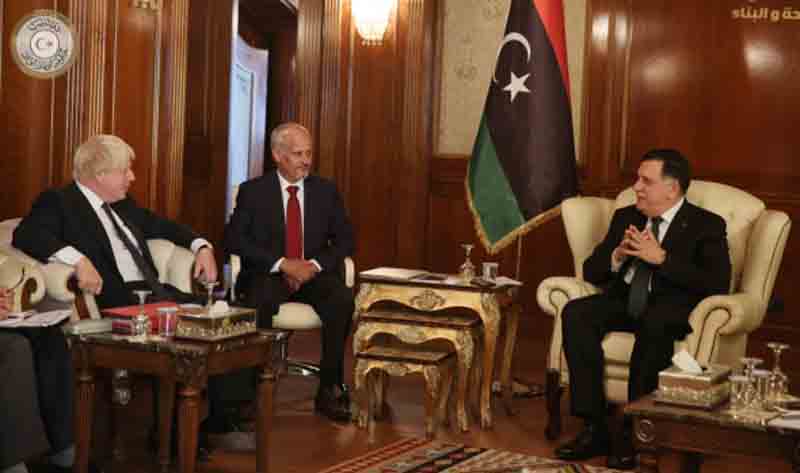By Libya Herald reporters.

Tunis and London, 23 August 2017:
The UK is to provide £15 million ($19 million) to the Presidency Council (PC) for mine clearance, essential rebuilding and to help feed internal refugees, British foreign secretary Boris Johnson said in Tripoli today.
Johnson, on his second visit to the capital in six months, told PC head Faiez Serraj that the UK was also committed to helping Libya tackle migration and terrorism.
“Libya is the frontline for many challenges which left unchecked can pose problems for us in the UK, particularly illegal migration and the threat from terrorism” said Johnson.
“That’s why it is so important that we work with the Libyan government and our partners to help bring stability to Libya, stopping it from becoming a fertile ground for terrorists, gun-runners and people-traffickers in close proximity to Europe”.
Johnson said that this meant London would support UNSMIL and its new chief Ghassan Salamé in promoting the Libyan Political Agreement (LPA). The British politician had had a meeting yesterday with Salamé in Tunis before flying on to Tripoli.
“But it also means” he said, “practical efforts too, including the new kit we are providing to make Sirte safer for Libyans and the work we are doing to ensure that the Libyan coastguard can secure their own borders, reducing the number of illegal migrants heading for Europe”.
Though Johnson mentioned £15 million of UK support, the Foreign Office later listed a £9 million programme of aid. Sirte would benefit from £3 million to remove unexploded ordnance that still litters the town and £1 million is to go on Libya-wide de-mining training which will include Benghazi, where the Libyan National Army (LNA) has been complaining it is receiving no help in the immense task of clearing explosives.
The UK is also adding a further £1 million to the £1.5 million it gave the United Nations Development Programme last year to help restore essential infrastructure. In addition there is £2.75 million “to support women’s participation in peacemaking and rebuilding Libya” and £1.29 million over the next two years to provide food, hygiene and urgent health care for internally displaced people.
London is also to boost its involvement with Libya in tackling organised crime and people-trafficking.
Though Italy has been providing the bulk of training for the Libyan Coastguard, the UK’s Royal Navy has also been running courses on search and rescue, boarding and inspecting suspect vessels and on human rights and the treatment of migrants.

After he had met Serraj and State Council head Abdulrahman Sewehli, Johnson went on to visit the Libyan Coastguard at the naval port. He also stopped off at the nearby currently unused British residence where, with ambassador Peter Millett, he hoisted the Union Flag up the mast.








